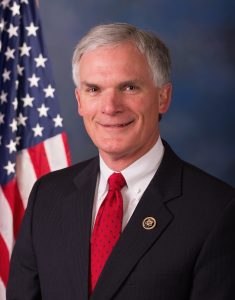
Rep. Bob Latta
The U.S. House Energy and Commerce Committee on March 20 passed a bipartisan bill proposed by U.S. Rep. Bob Latta (R-OH) that would require a federal study of certain routers and modems that are designed, developed, manufactured, or supplied by foreign adversaries.
The committee voted 43-0 to approve the Removing Our Unsecure Technologies to Ensure Reliability and Security (ROUTERS) Act, H.R. 7589, which Rep. Latta sponsored on March 8 alongside lead original cosponsor U.S. Rep. Mary Peltola (D-AK).
“I’m pleased to see my ROUTERS Act advance through the Energy and Commerce Committee and I look forward to it being brought up for a vote before the U.S. House of Representatives,” said Rep. Latta.
If enacted, H.R. 7589 would require the assistant secretary for communications and information at the U.S. Commerce Department to study the national security risks posed by routers, modems, or devices that combine both that are designed, developed, manufactured, or supplied by persons owned by, controlled by or subject to the jurisdiction or direction of China, Russia, Iran, North Korea, Cuba, or Venezuela, according to the text of the bill.
“As we continue to see threats arise from foreign adversaries, like Communist China, ensuring the security of our nation’s communications infrastructure is important,” Rep. Latta said. “This legislation is a crucial step to safeguard our networks and protect Americans from cyberthreats in their place of employment and in their homes.”
House Energy and Commerce Committee Chair Cathy McMorris Rodgers (R-WA) added that Americans are counting on Congress to deliver on bipartisan solutions that aim to improve their lives.
“The ROUTERS Act is an important, bipartisan bill that will help ensure our communications networks are secure from threats posed by foreign adversary-controlled technology in the United States,” she said. “I commend Rep. Latta for his leadership delivering real results for the American people.”



